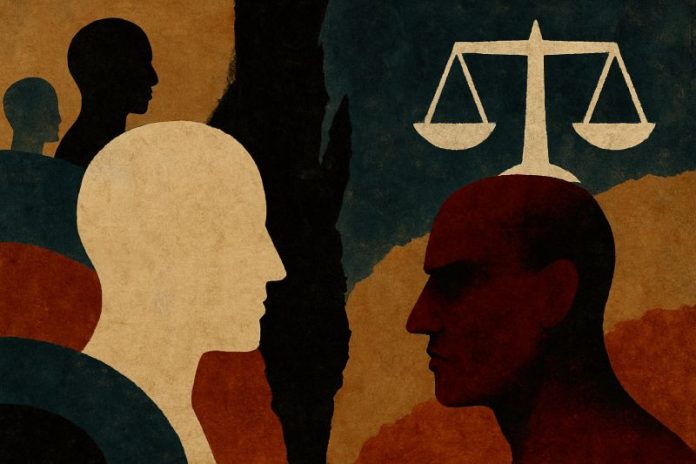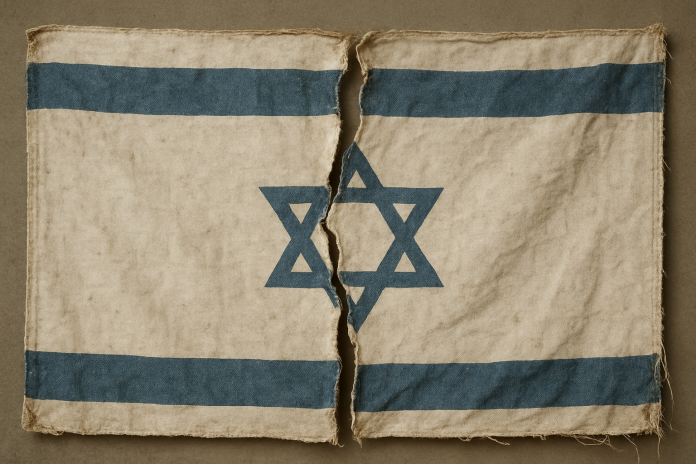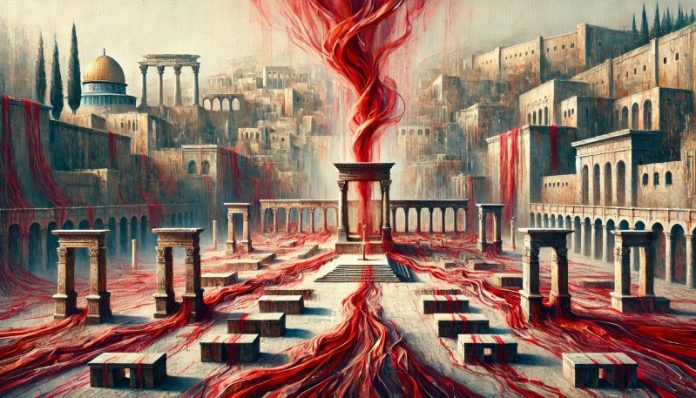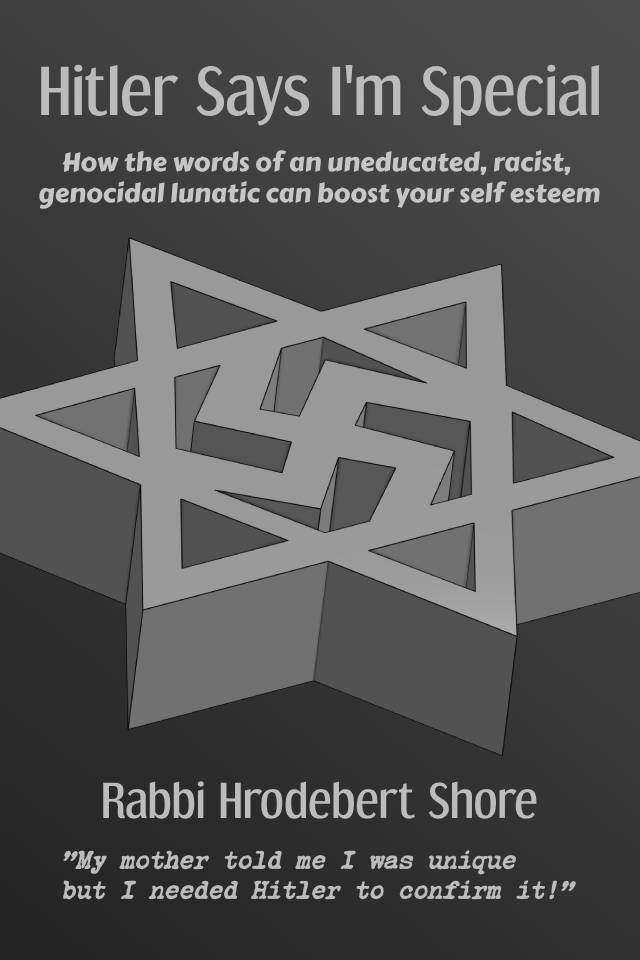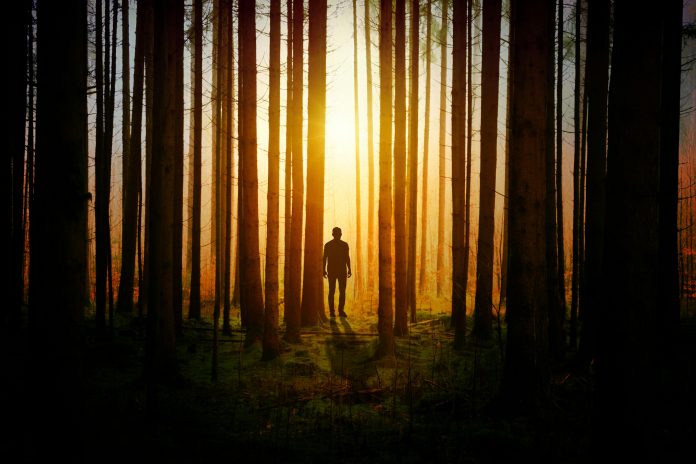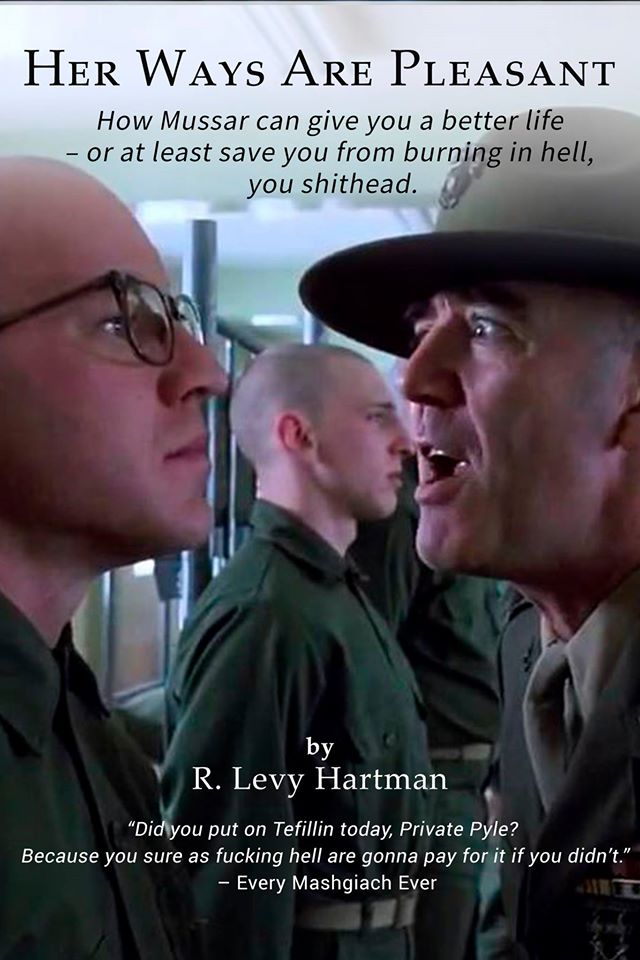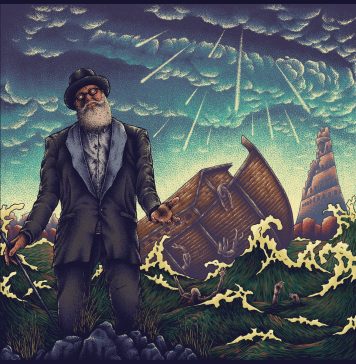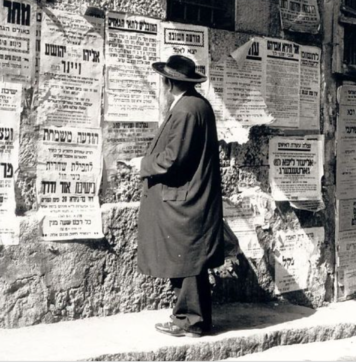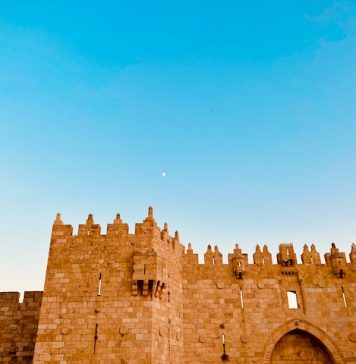The way I was raised, race, peoplehood, and identity were intertwined with ethics and morals.
In Teachings
It started with Jewish texts and teachings. Muslims were descendants of Ishmael, “a nation who resembled donkeys,” destined to be perpetual shit-disturbers.
Christians were sons of Esau, a bloodthirsty cutthroat who lived by the sword. Germans were part of this lineage, descendants of “Edom” and “Amalek”.
Amalek was a mythical nation that was represented as the arch-enemy of the Jewish people, committed to destroying Jews because of an opposition to their morals, spearheading the anti-Jewish crusade when other nations were afraid to do so.
As a result, we recounted yearly the commandment to destroy every man, woman, and child of Amalek as a moral imperative.
Due to its amorphous quality, Amalek as an identity could be applied to any enemy of the Jews. When I was a child it was Hitler and the Germans who were Amalek. More recently, the title has been used to describe Palestinians.
A theological abstraction with real-life genocidal consequences.
In Culture
These theories were embedded in the culture.
A refusal to buy German cars and appliances.
A belief that all Poles are antisemitic Jew-haters.
That all Blacks are lazy, sexually promiscuous, and unable to maintain a stable home.
Their ethnicity and race defined their behaviors.
It made life safe and simple. Us versus them.
We were the free thinking good guys, they were the brainwashed, immoral bad guys.
Shifting Powers
The last few years have been a wake up call, an opportunity to further dismantle beliefs I didn’t realize I still held about the existence of a clear line between good and evil.
Jews were always good: the proof was in how much we were persecuted.
America was always good: look at how they supported Israel, how they helped win World War II and liberate the Jews.
As I watch America devolve, as I watch Israel spiral into frenzied genocidal hatred, I am faced with the uncomfortable truths that everyone is capable of evil, and that it usually comes down to power.
Jews tended to be persecuted throughout history because they were a powerless minority. Now that they do have power, they have become persecutors.
America, wielder of the greatest military and financial power in history, has innumerable evils under its belt, which it sweeps under the rug while preaching moral superiority with hypocritical aplomb.
It is a lot less philosophically convenient, and feels a lot less safe, when someone is arbitrarily evil as opposed to fundamentally so.
Turns out, it’s not that Jews were inherently victims, as Zionists would like you to believe. It’s not built into their physical DNA, as Hitler would have you believe; nor is it built into their spiritual DNA as my father and his populist book attempts to claim. They just happened to be victims for a very long time.
It seems stupidly obvious now, but it is anathema to everything I was raised with: it’s not that Germans were inherently evil, they happened to experience a combination of circumstances that lead to things playing out the way they did. And some of their actions have been magnified to serve a specific agenda, while other evils perpetuated by them and others have been discarded from the narrative.
It could have happened to anyone, as indeed we are watching it happen to ‘anyones’ right now that we wouldn’t have thought capable of such things just a few years ago. And therein lies the lesson.
Today
It’s scary to watch history repeat. To watch people all around you devolve, become polarized.
Does it really only take a few years, a few months, to turn a majority against a perceived enemy?
Realizing that even sweeping testaments like “Never Again” and endless Holocaust education were just about maintaining power for a select few. In this case, the power of victimhood, the ultimate trump-card in a supposedly liberal world.
It makes us question those statements that were so easy to make as a child, that if Hitler was rising to power around you, you’d be able to identify the Nazis for who they were and sever all ties from them. That Germans must have been morally corrupt to have supported such a person.
Now, it turns out, it’s your next door neighbor who is just doing their duty. It is your own leader who is angling for endless power, who is being voted for by the majority of your country.
Do you sever ties from those you otherwise love? Have they crossed lines you cannot tolerate? Or do you get by with just “not talking politics”? Would you rather not know?
Has any one person done enough to be a villain, or are they each insignificant cogs in a giant machine?
Does the fact that they “have their doubts”, or condemn certain behaviors, or show some empathy for the other side, enough? Does it lend them enough nuance to be tolerated, or is it the end results that matter?
Now, it turns out, you have brothers, cousins, boyfriends calling in airstrikes and shooting unarmed protesters, and you wonder, how do you separate the art from the artist, the human from the race, the intent from the act, the person from the perpetrator?


